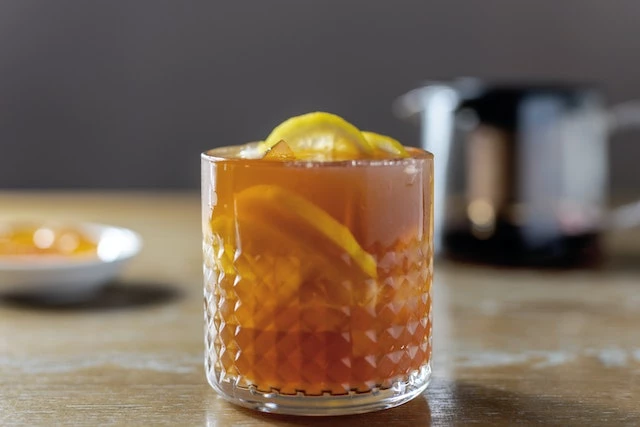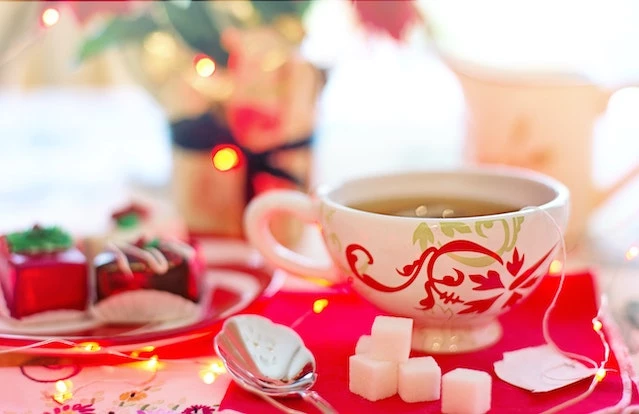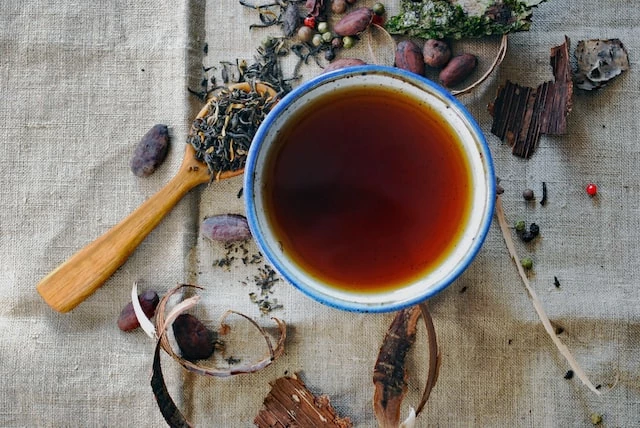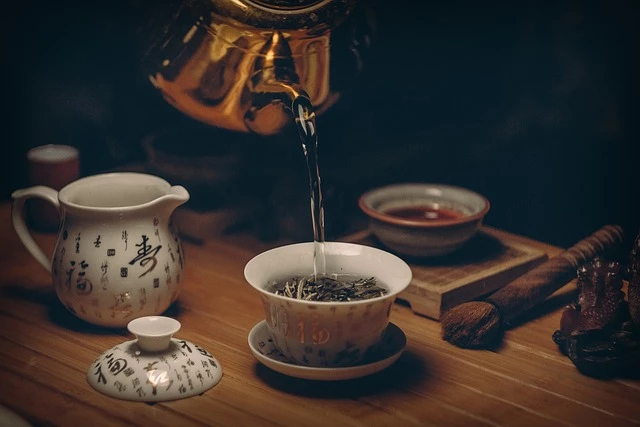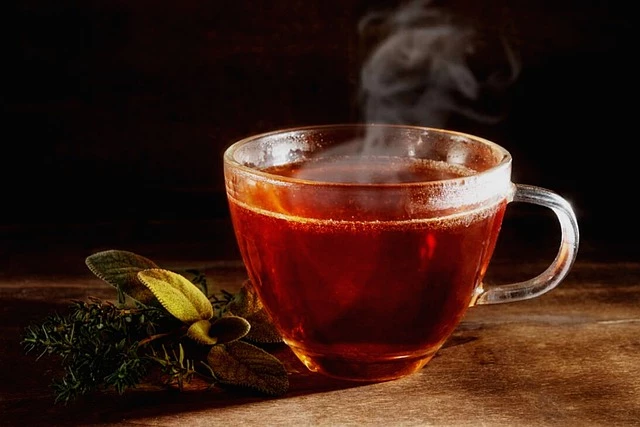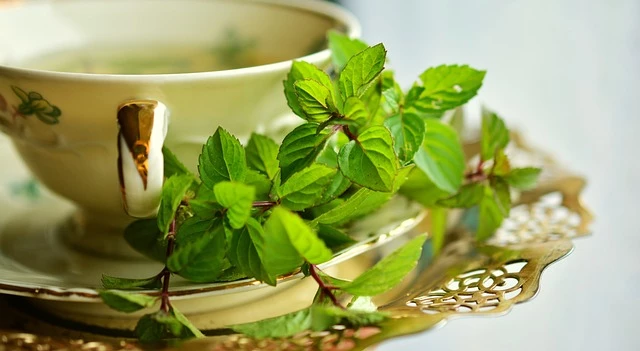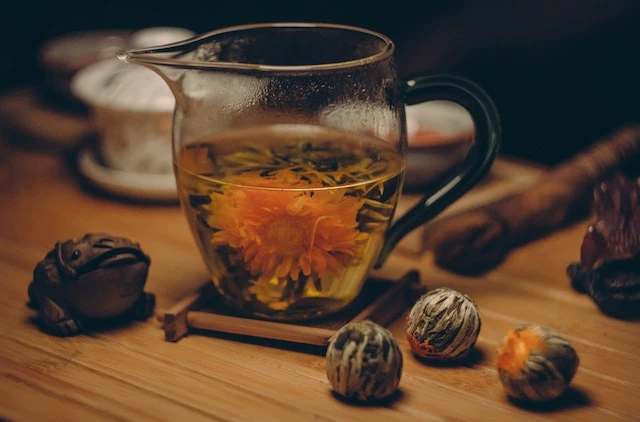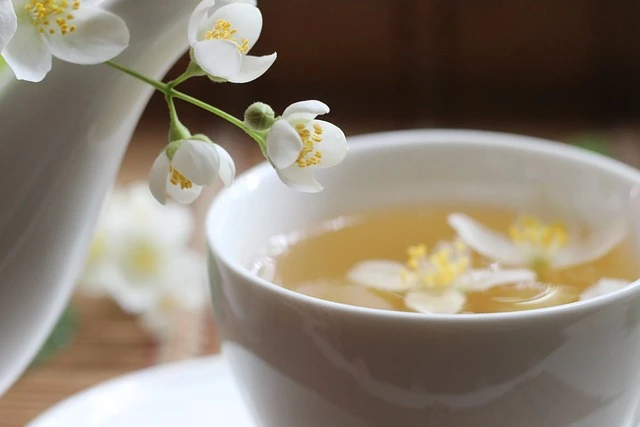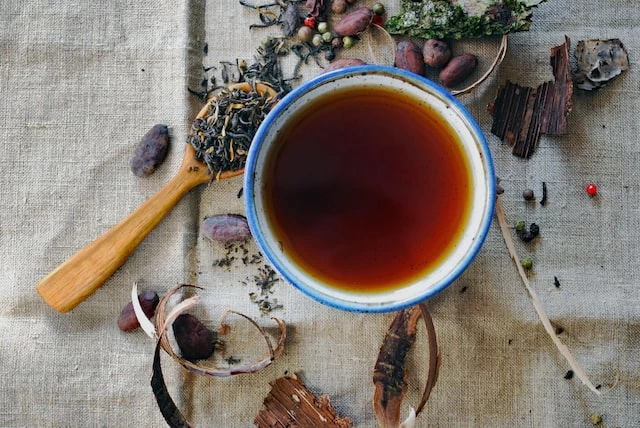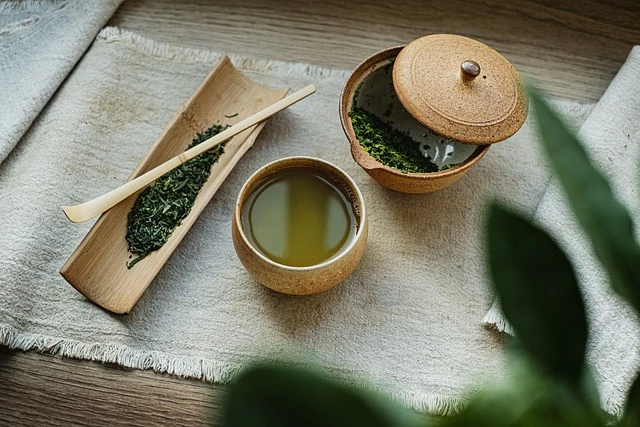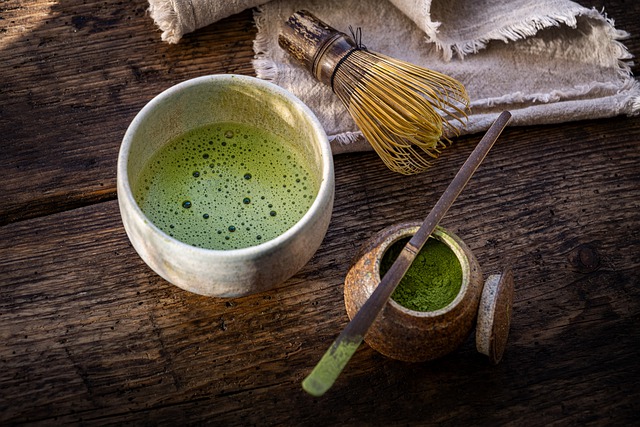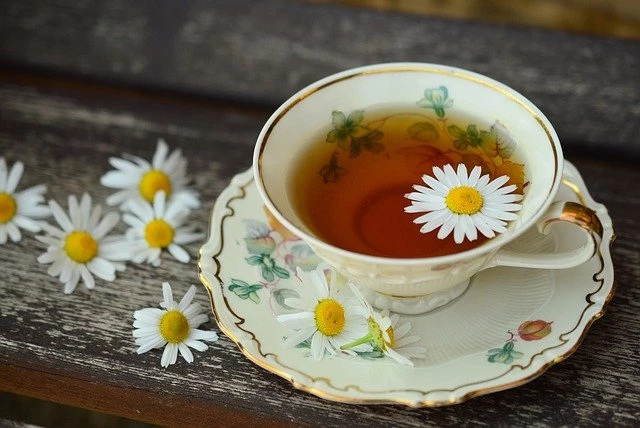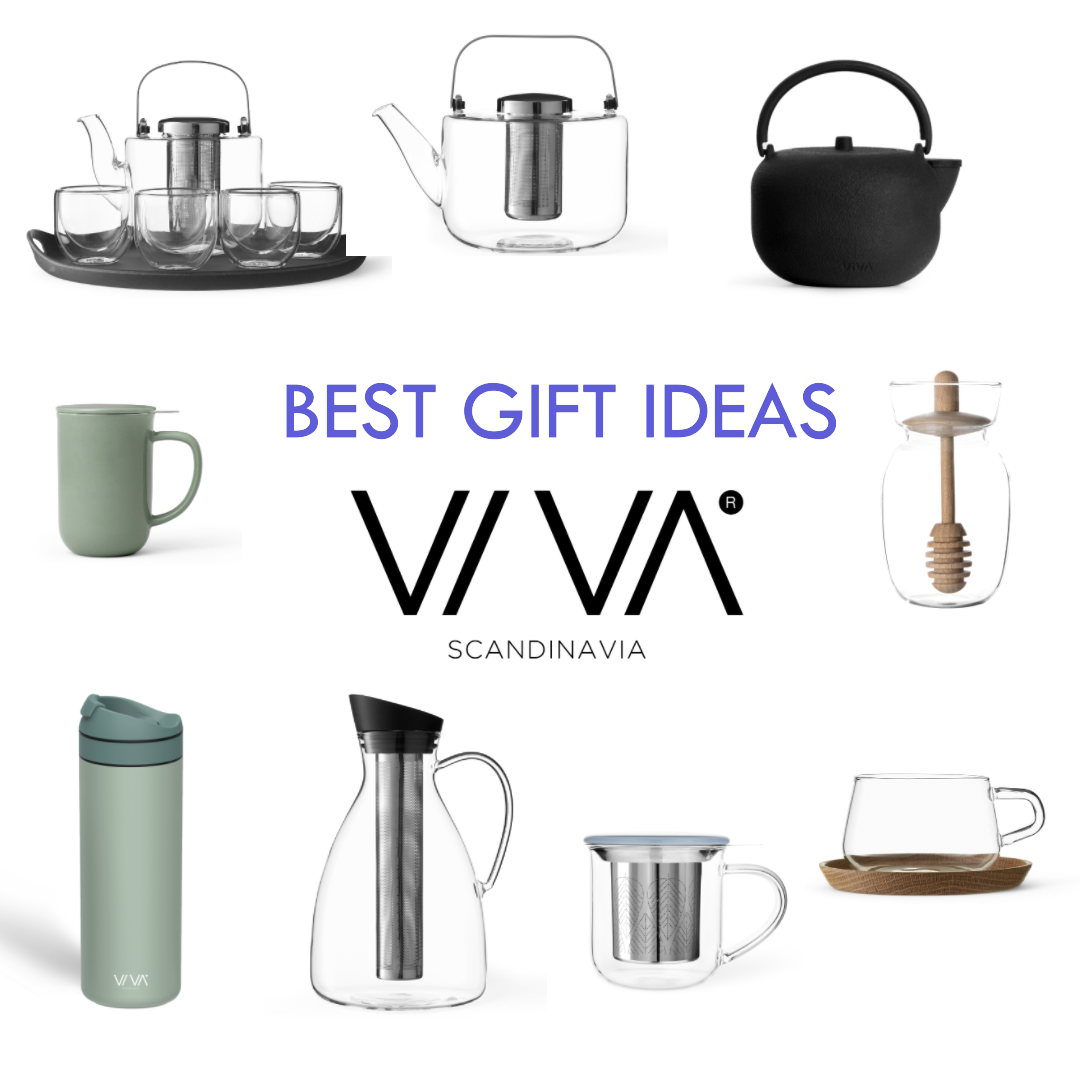Types of Herbal Teas & Their Benefits
Feb 14 2022 Tea Knowledge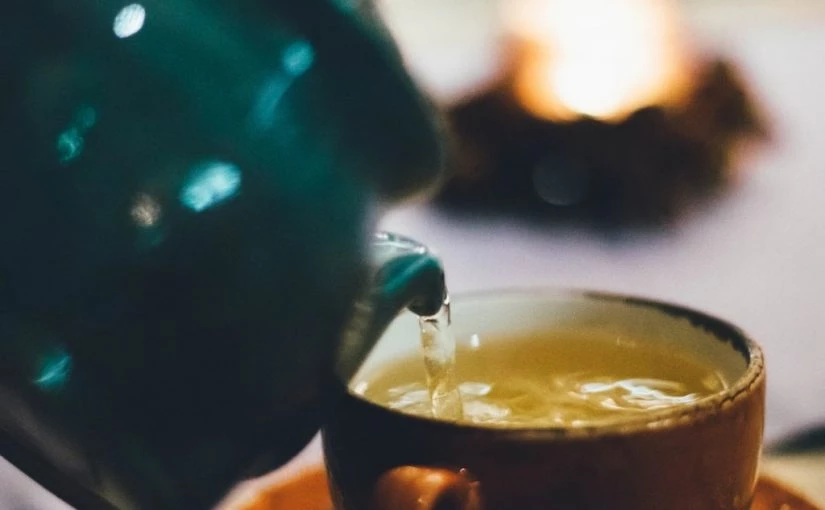
Herbal teas are delicious, refreshing, and packed with health benefits. They’re also called tisanes, and they’re usually made from blends of:
- Herbs
- Spices
- Fruits
- Flowers
Herbal teas don’t have caffeine. This is great for tea lovers who don’t want the extra energy, but still want:
- Stress relief
- Allergy relief
- Digestion support
- Headache relief
- Lower blood sugar
- And more
*Greetings, tea lover! We based this list on ratings, best-sellers, and trusted reviews. We researched tons of herbal teas to find the very best selections for you. So heat up your kettle and enjoy!
The best chamomile herbal teas
Chamomile tea is a delicious and traditional health beverage. It’s made from dried chamomile flowers and contains flavonoids. Flavonoids are a type of nutrient and they give chamomile health benefits like:
- Menstrual pain relief
- Blood sugar level reduction
- Osteoporosis prevention
- Inflammation control
- Cancer prevention and treatment
- Sleep and relaxation aid
- Cold symptom treatment
- Mild skin condition treatment
If you’re new to the world of chamomile, start small. Potent chamomile brews can be tough on the stomach and may cause an allergic reaction. Here are some brews to get you started — and the pros and cons of each:
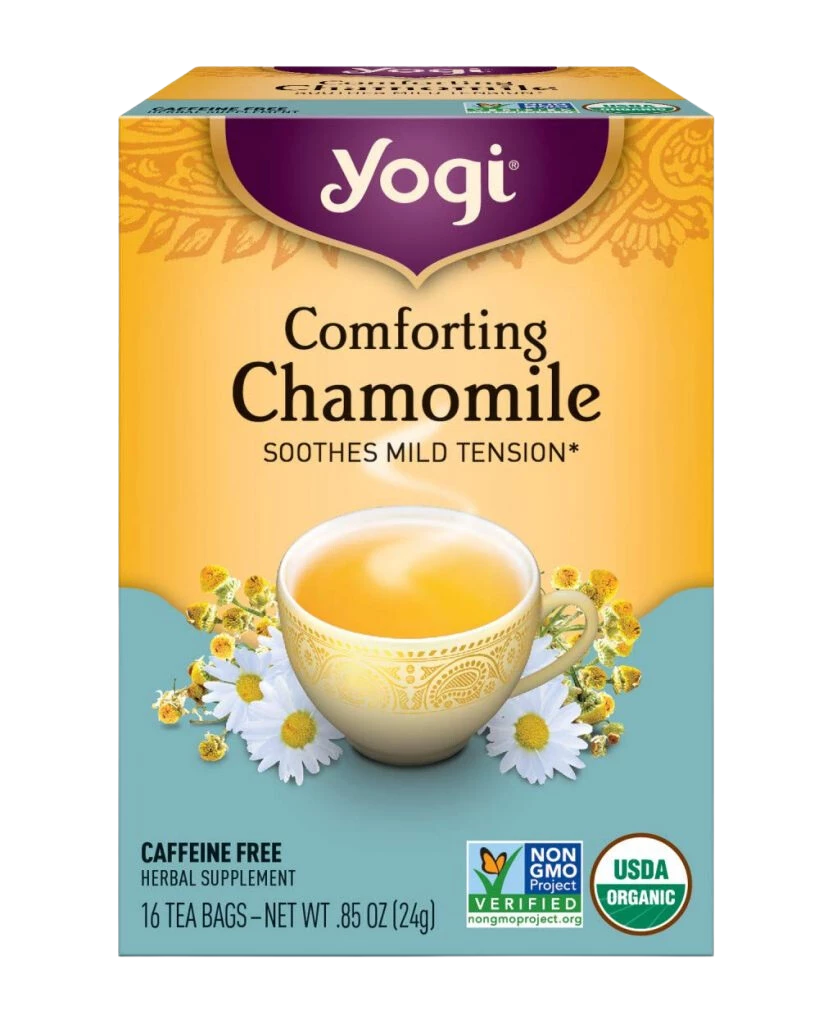
Yogi Comforting Chamomile Tea Yogi Tea Flavor: Chamomile Caffeine: Caffeine Free
Pros: Organic chamomile with no fillers or additives.
Cons: If you drink too much, it may cause nausea. And the tea bags aren’t individually wrapped.
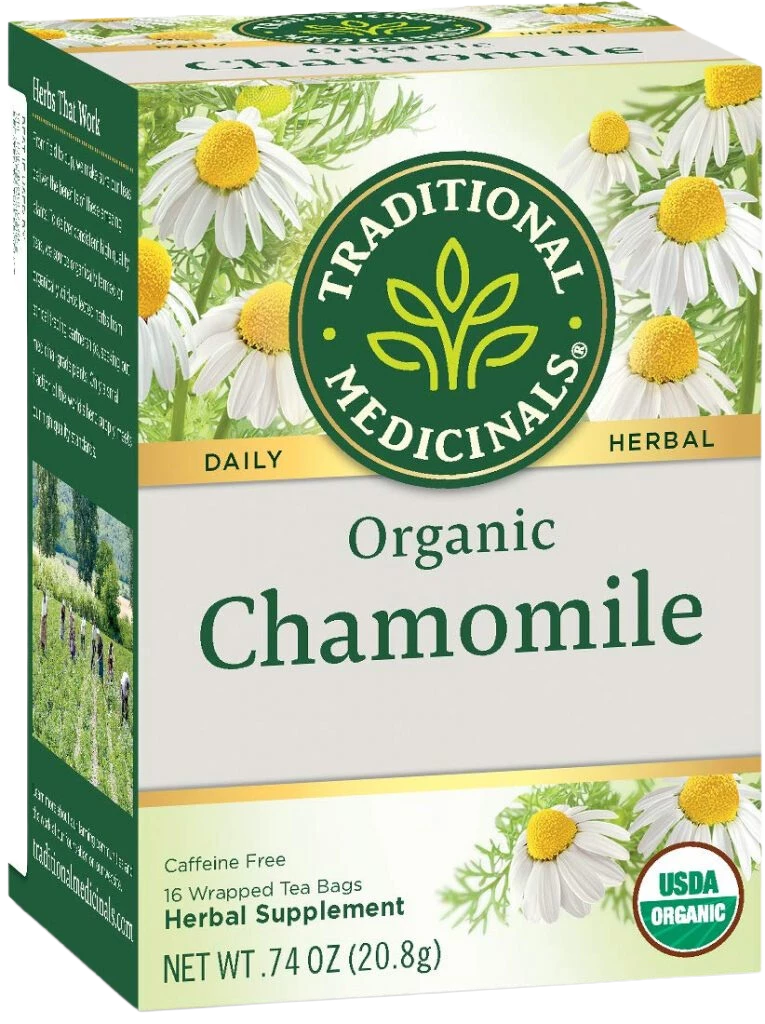
Traditional Medicinals Organic Chamomile Herbal Leaf Tea Traditional Medicinals Organic Tea Flavor: Chamomile Caffeine: Caffeine Free
Pros: May help with weight loss and improve kidney function.
Cons: Some tea lovers report this brew’s flavor profile isn’t as strong as they’d like it to be. And the tea bags may fall apart as you steep.
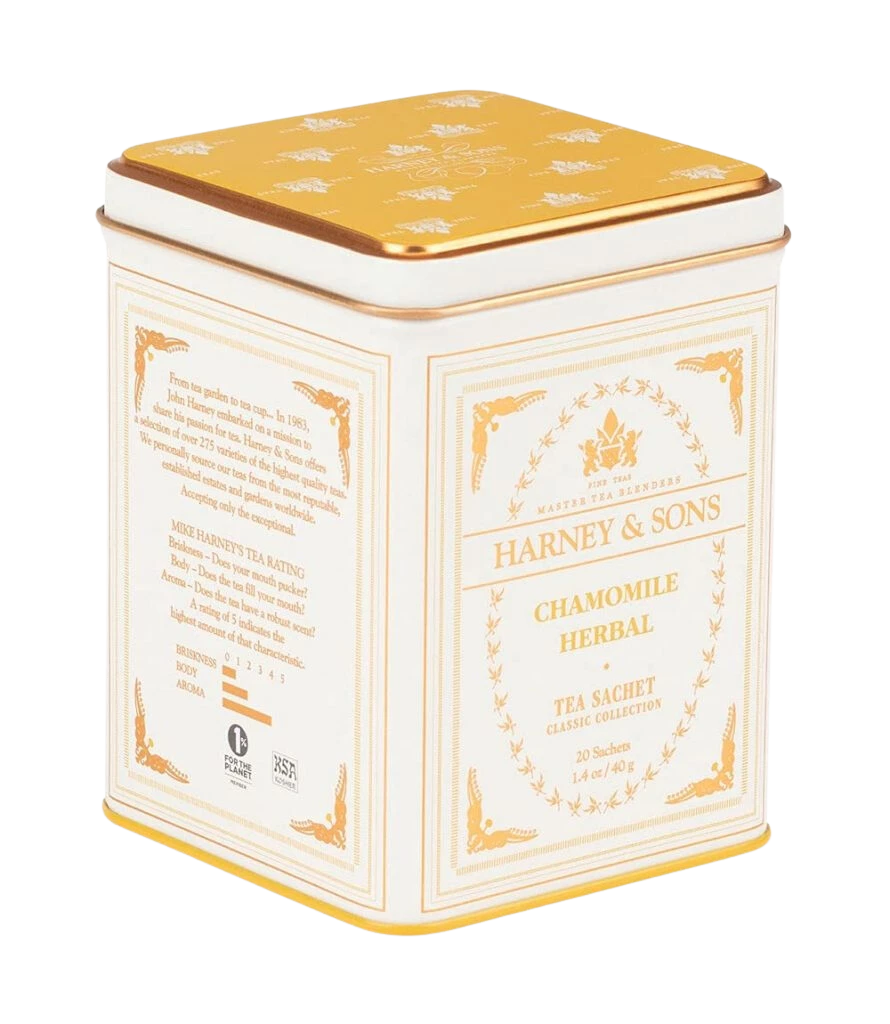
Harney & Sons Chamomile Herbal Tea Harney & Sons Flavor: Chamomile Caffeine: Caffeine Free
Pros: Delicious and unique taste that’s popular among experts and newcomers alike.
Cons: Packaged in plastic sachet bags which isn’t ideal for every tea drinker.
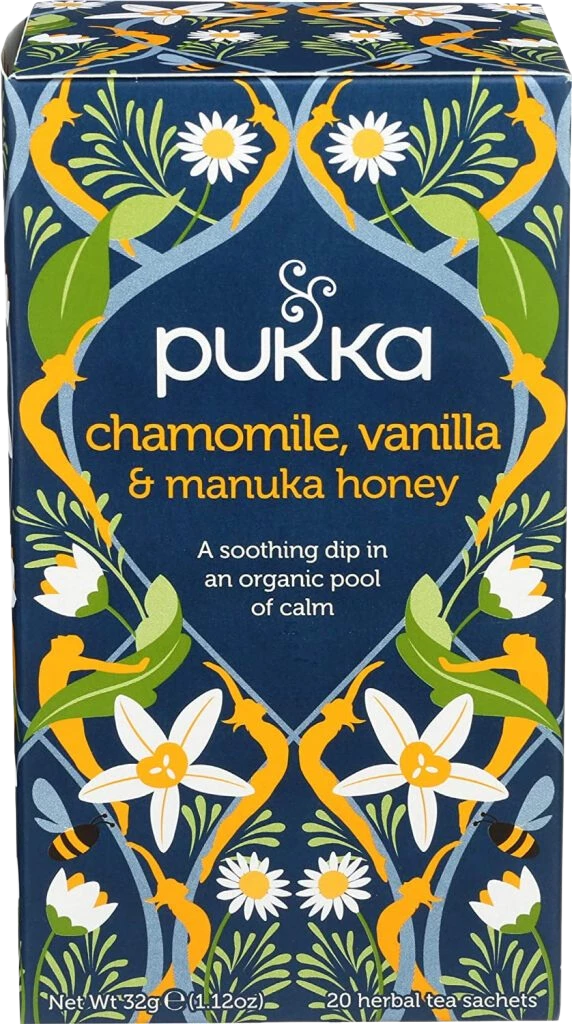
Pukka Chamomile Herbal Tea Pukka Tea Flavor: Chamomile & Vanilla Caffeine: Caffeine Free
Pros: Individually wrapped and certified organic tea.
Cons: Contains licorice and fennel. Both are strong flavors that not every tea enthusiast enjoys.
The best rooibos herbal teas
South Africans have enjoyed tasty and healthy rooibos tea for centuries. And now it’s gaining popularity around the world as a caffeine-free treat. It’s also known as red tea and it’s made from a type of shrub that grows off the coast of South Africa.
Rooibos tea is also made from fermented leaves. For tea drinkers who don’t love fermentation, green rooibos is a tasty alternative.
Either way, most people drink it the same way they’d drink black tea (with cream and sugar, or in a latte). And it’s packed with antioxidants that offer health benefits like:
- Caffeine-free
- Low in tannins
- Low in oxalic acid
- Supports heart health
- Cancer prevention
- Supports blood sugar levels
- Healthier digestion
- Sleep and relaxation aid
- Supports bone health
- Relieves headaches
- Relieves allergy symptoms
- May relieve colic
Start exploring rich rooibos brews with these tea brands:
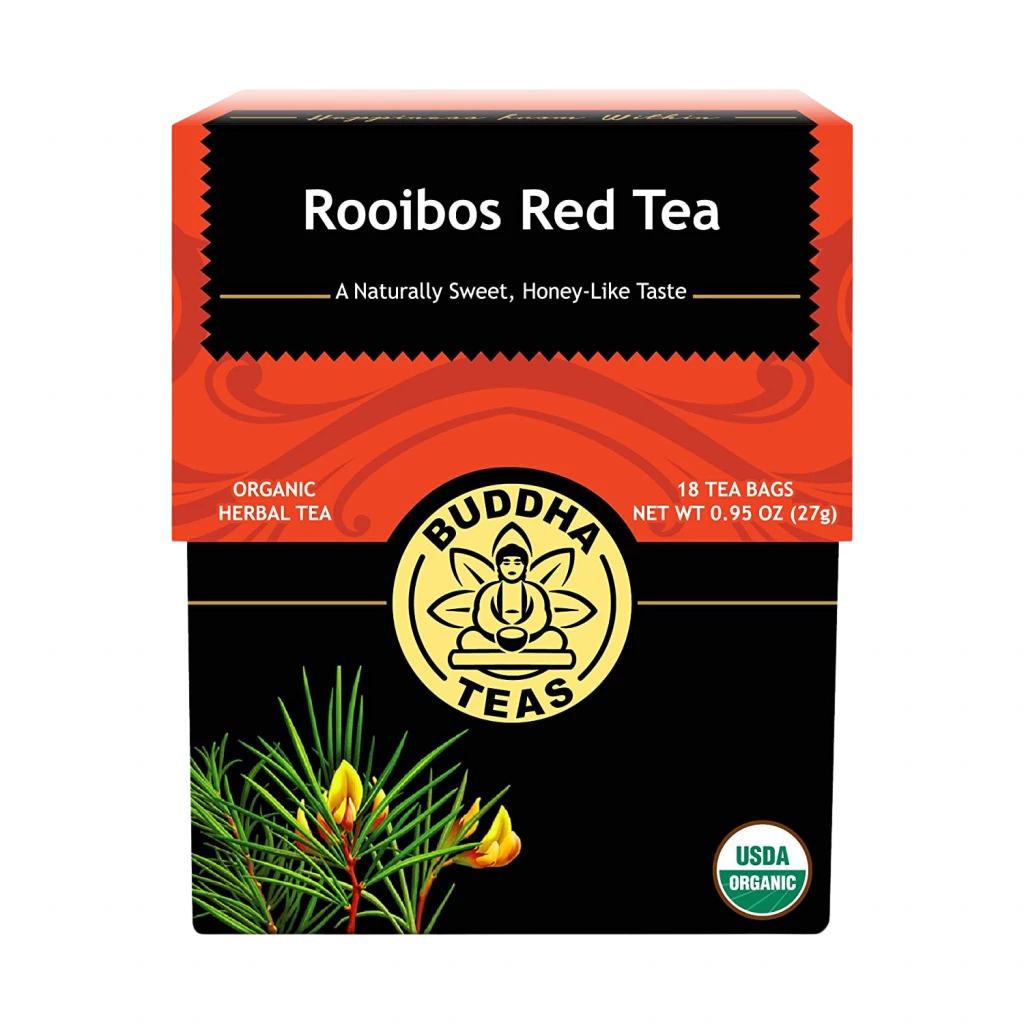
Buddha Teas Organic Rooibos Buddha Teas Flavor: Roobios Tea Caffeine: Meddium Caffeine
Pros: Gluten-free and GMO-free high-quality tea. The box is made from recycled materials.
Cons: Like other rooibos teas, you may have to use more than one tea bag to get the desired taste.
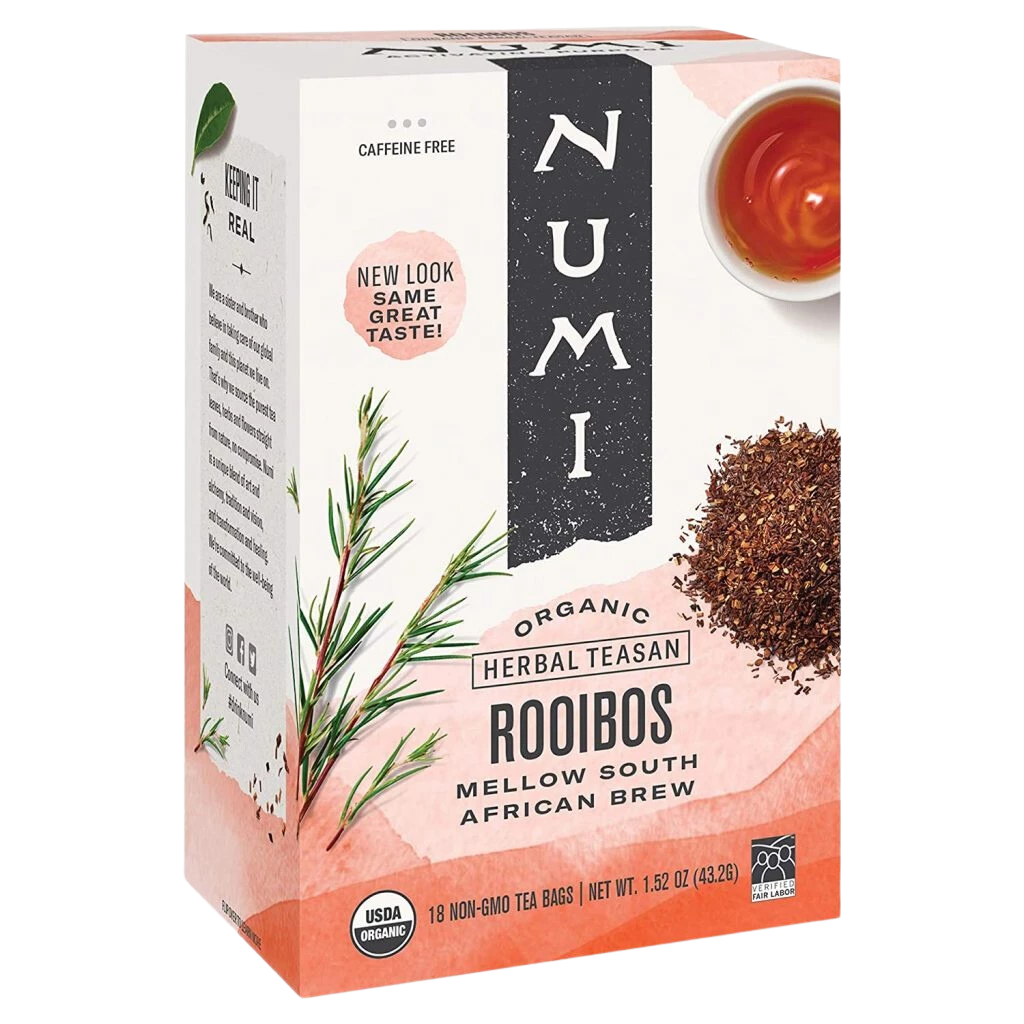
Numi Organic Rooibos Numi Organica Flavor: Rooibos Chai Caffeine: Caffeine Free
Pros: Naturally sweet with honey aromas and overtones.
Cons: Has cinnamon flavors and may taste similar to chai for some tea drinkers.
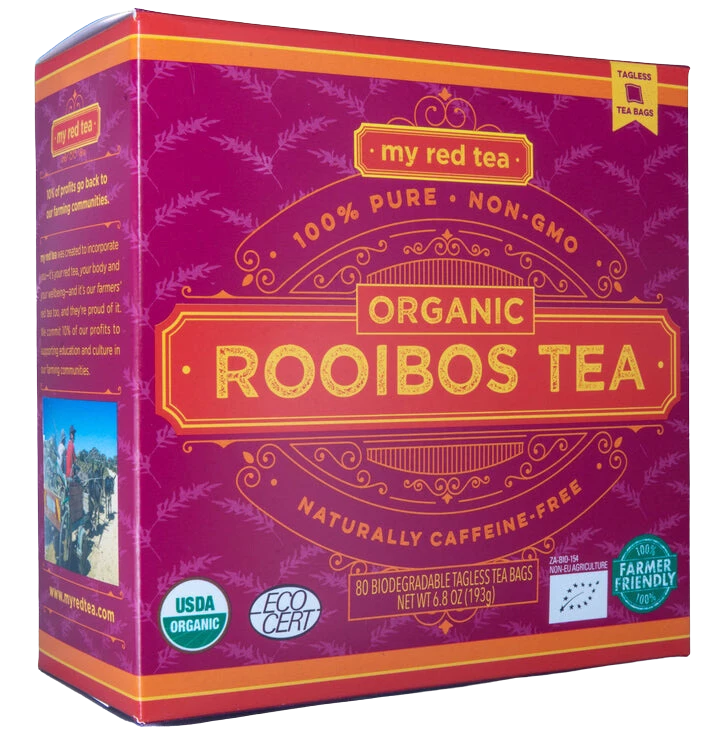
My Red Tea Organic Rooibos My Red Tea Flavor: Rooibos Caffeine: Caffeine Free
Pros: Packed in biodegradable and tagless tea bags.
Cons: Tea drinkers who prefer stronger brews may have to steep for longer and/or use more than one tea bag.
The best lavender herbal teas
Lavender tea is made from the purple buds of the lavender flower. It’s often brewed with hot water and touted to reduce anxiety and promote better sleep. Lavender tea drinkers may enjoy other benefits like:
- Skin health support
- Mood disorder support
- Better sleep
- Menstrual cramp relief
Many lavender tea lovers prefer to drink their brews before bed. So here are some brands to try the next time you want to catch more z’s:
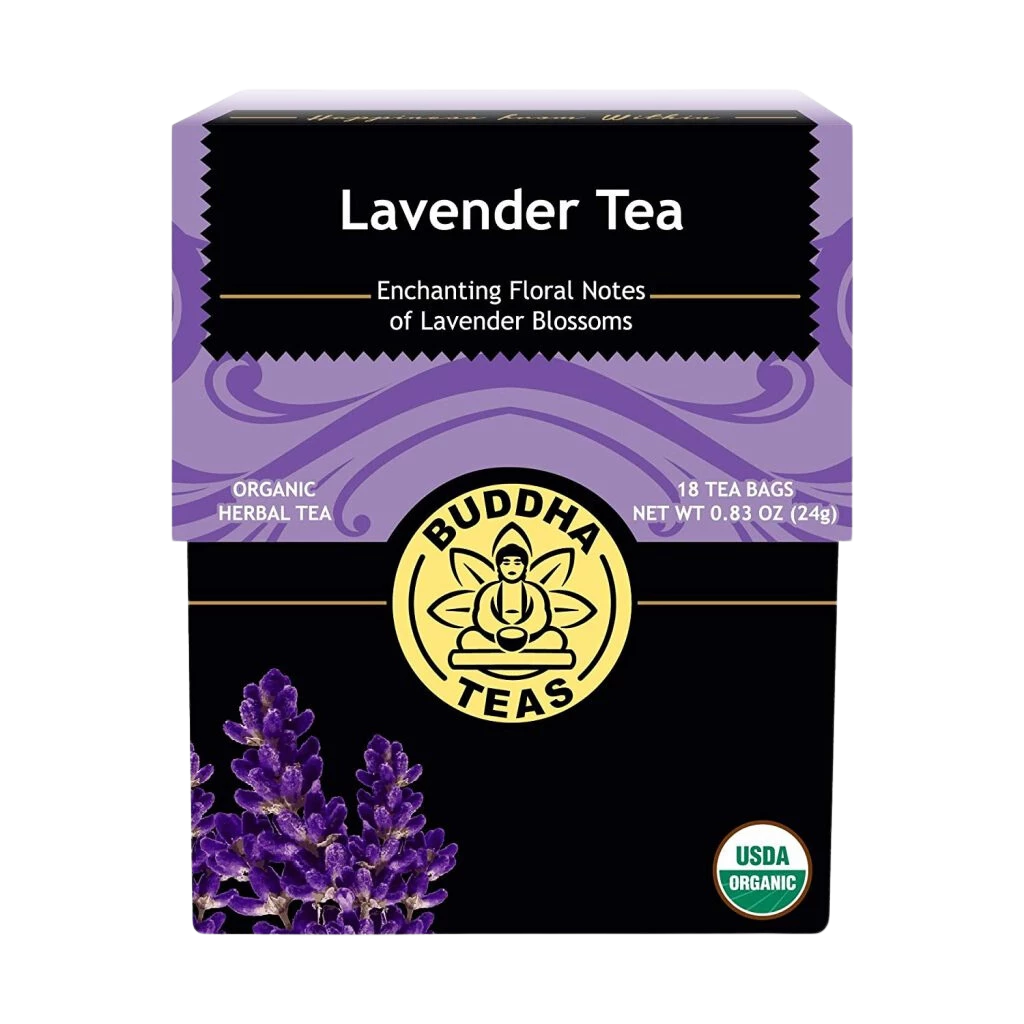
Buddha Teas Organic Lavender Buddha Teas Flavor: Lavender Caffeine: Caffeine Free
Pros: Lots of antioxidants, vitamins, and minerals in every cup.
Cons: The only ingredient is lavender flowers — which is a pro for lots of tea lovers. But if you’re looking for lavender mixed with other flavors, this might not be for you.
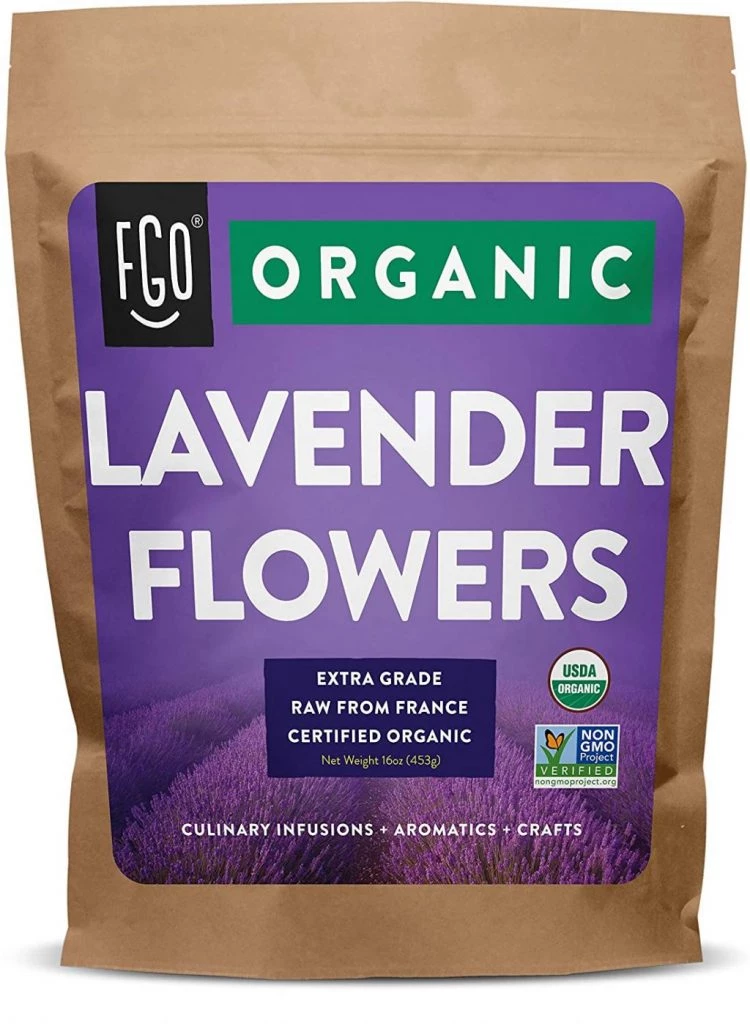
Feel Good Organics Lavender Flowers Feel Good Organics Flavor: Lavender Flowers Caffeine: Caffeine Free
Pros: Made in the USA with no preservatives and no artificial flavors.
Cons: Like Buddha Teas, lavender flowers are the only ingredient. If you want a mix of flavors, this might not be the best brew.
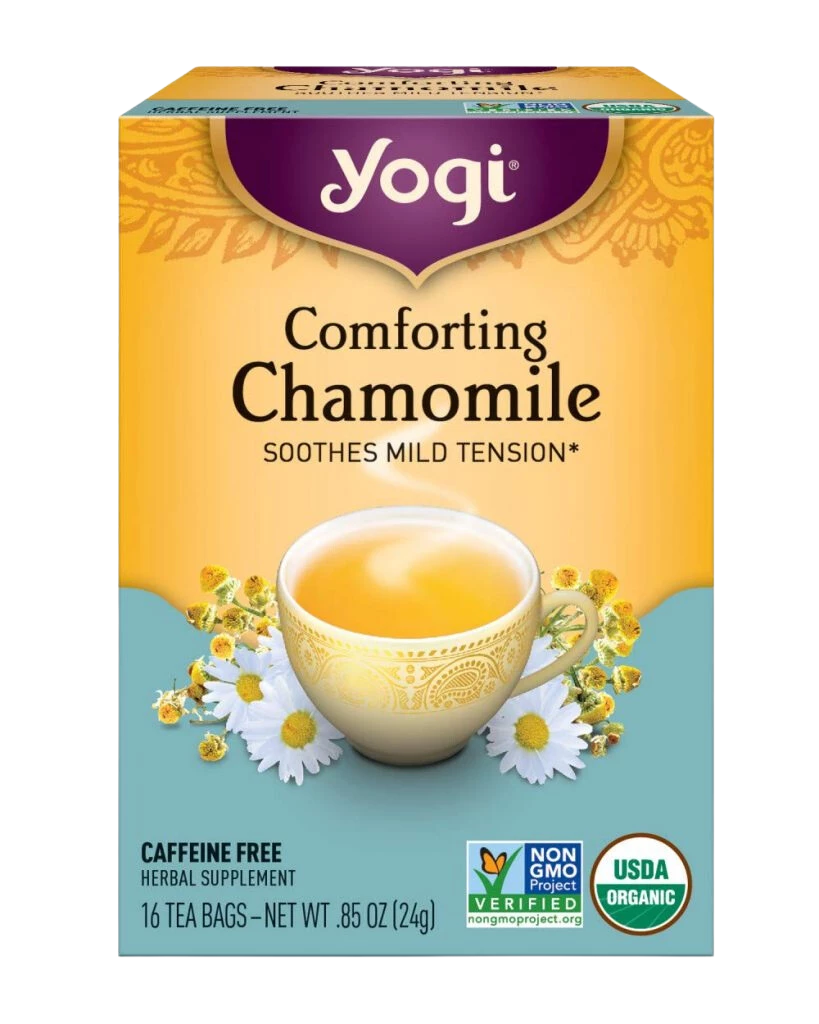
Yogi Honey Lavender Stress Relief Yogi Tea Flavor: Honey Lavender Caffeine: Caffeine Free
Pros: No artificial sweeteners and packaged in individual compostable tea bags.
Cons: Contains other flavors like lemon, vanilla, and honey. This is a pro for some tea lovers and a con for others. It largely depends on your taste preferences.
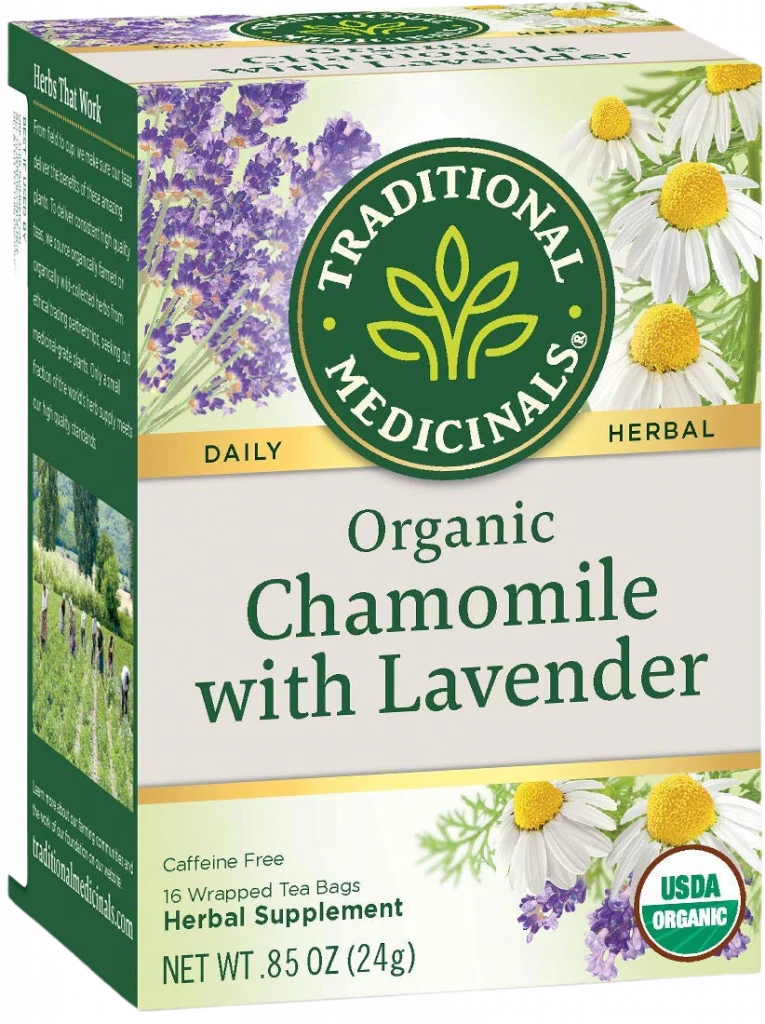
Traditional Medicinals Organic Chamomile with Lavender Tea Traditional Medicinals Flavor: Chamomile,Lavender Caffeine: Caffeine Free
Pros: Lovely floral aromas and lavender flavors. Made with high-quality herbs and other ingredients.
Cons: Like Yogi Honey Lavender, this brew contains other flavors. If you enjoy lemon balm leaf and chamomile, this one’s for you. But if you’re looking for just lavender, try Buddha Teas or Feel Good.
The best ginger herbal teas
People have used ginger for centuries to treat common ailments like motion sickness. And it’s a popular kind of herbal tea. Brew it hot or iced and enjoy countless benefits like:
- Motion sickness relief
- Morning sickness relief
- Chemotherapy side effect relief
- Lower blood pressure
- Heart health support
- Weight-loss support
- Blood sugar control
- Pain relief
- Immune support
- Cancer prevention
Ginger tea is known for its spiciness, often mixed with lemon or another citrus. Here are some popular ginger herbal tea suggestions for your next cup:
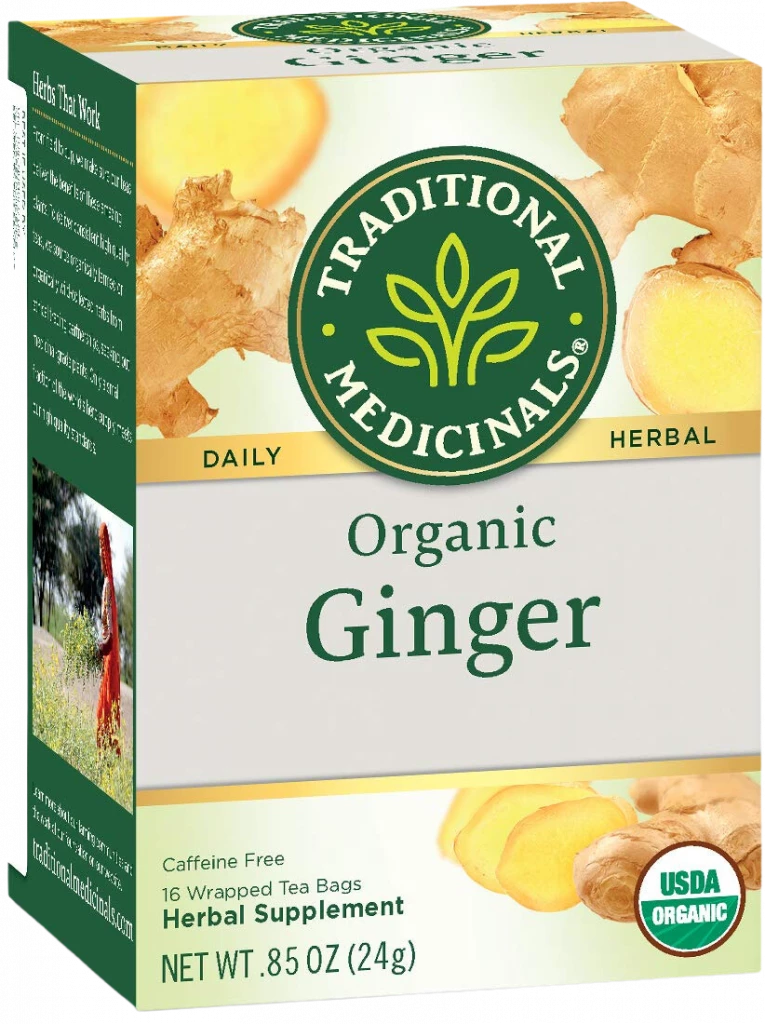
Traditional Medicinals Organic Ginger Herbal Tea Traditional Medicinals Flavor: Ginger Aid Caffeine: Caffeine Free
Pros: Made with renewable energy sources and packed in compostable tea bags.
Cons: Although this tea’s only ingredient is ginger, it might be too mild for some tea lovers.
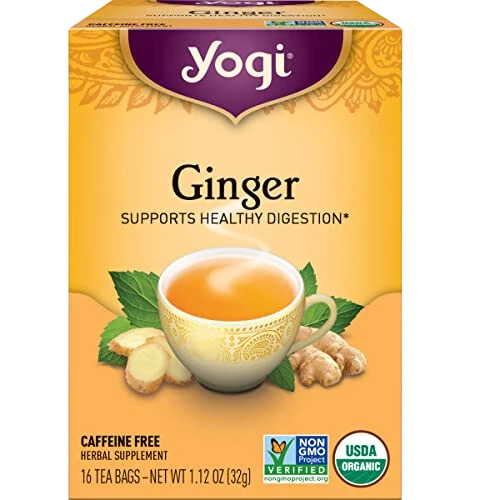
Yogi Ginger Tea Yogi Flavor: Ginger Caffeine: Caffeine Free
Pros: Supports healthy digestion and has a complex flavor profile.
Cons: This brew has other ingredients like black pepper, licorice, and peppermint. These are strong flavors that might not be for every tea drinker.
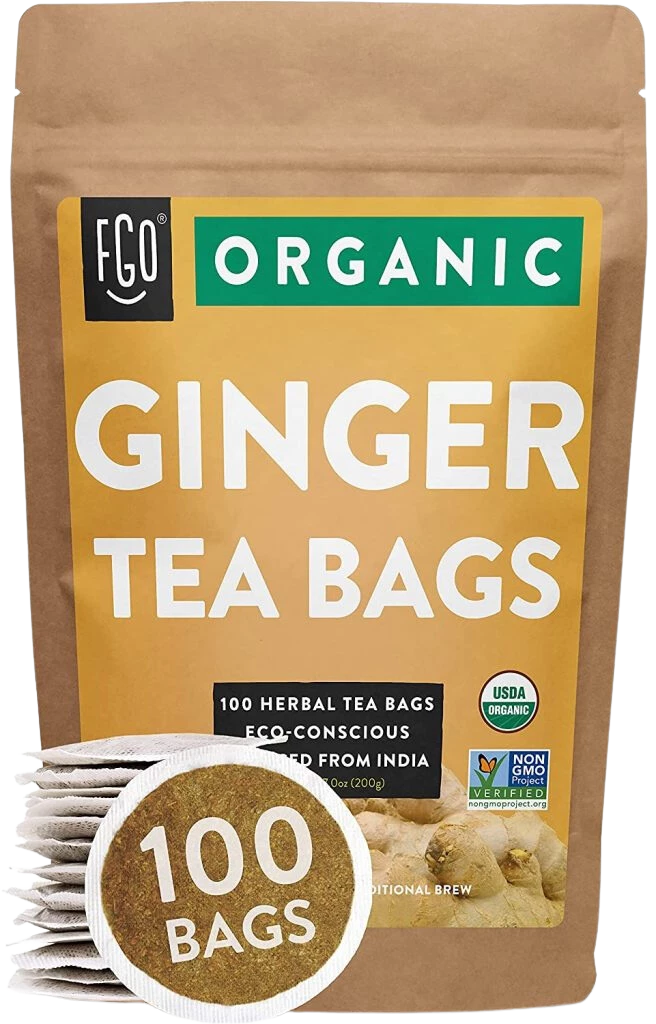
FGO Organic Ginger Tea FGO Organic Flavor: Ginger Caffeine: Caffeine Free
Pros: Organic ginger root imported from India. Made with hemp fiber paper tea bags.
Cons: It’s easy to over-steep this tea which can lead to a bitter-tasting brew.
The best peppermint herbal teas
Peppermint is a minty, fresh, and aromatic herb that’s a cross between spearmint and watermint. It’s popular for its “coolness” and has lots of health benefits like:
- Digestive support
- Relieves upset stomachs
- Headache relief
- Breath freshener
- Relieves nasal congestion
- Increases energy
- Relieves menstrual cramps
- Sleep aid
- Weight loss aid
- Allergy relief
- Increased concentration
Give one of these popular peppermint teas a try the next time you need a refreshing pick-me-up.
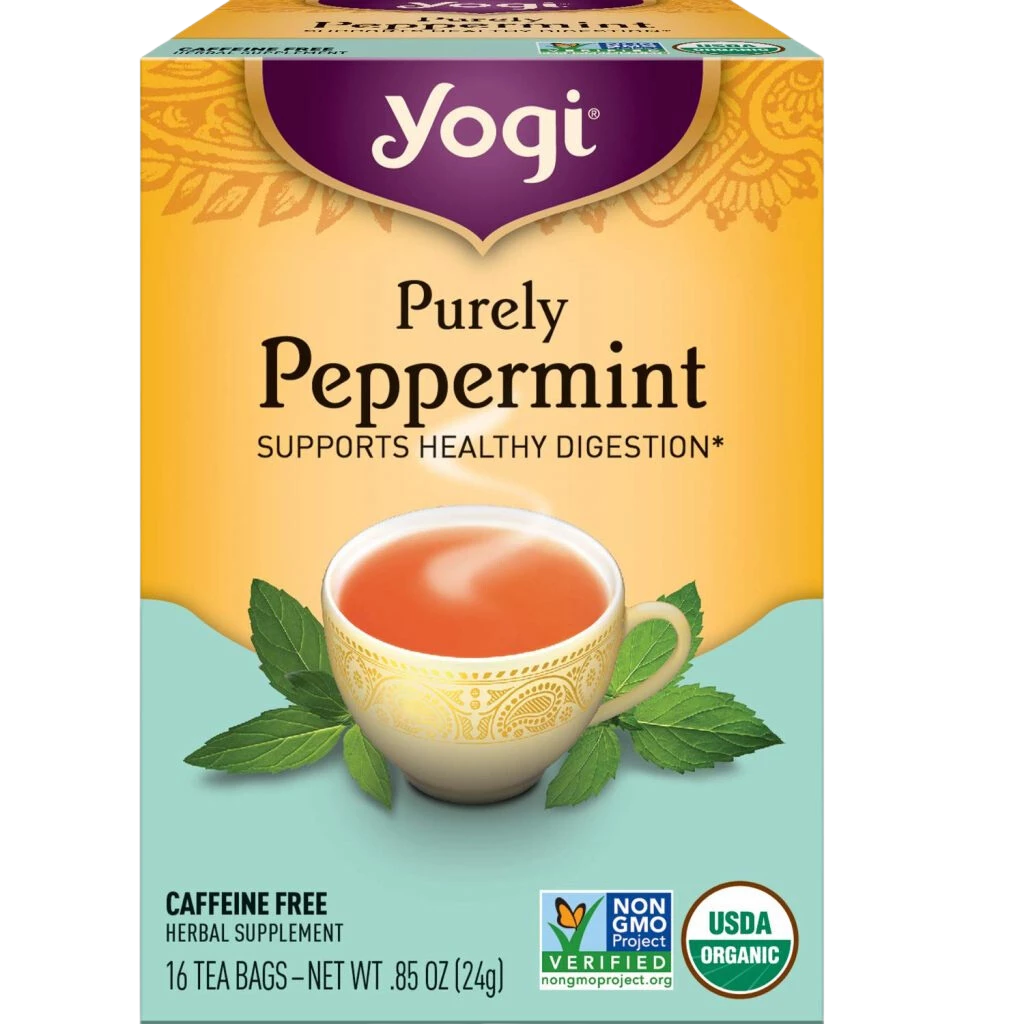
Yogi Purely Peppermint Tea Yogi Flavor: Peppermint Caffeine: Caffeine Free
Pros: Flavor is packed in every peppermint tea bag. And some of the tea bags have fun inspirational quotes on them.
Cons: Peppermint tea can have a strong cooling effect. If you’re new to the world of minty teas, brew less potent cups at first.
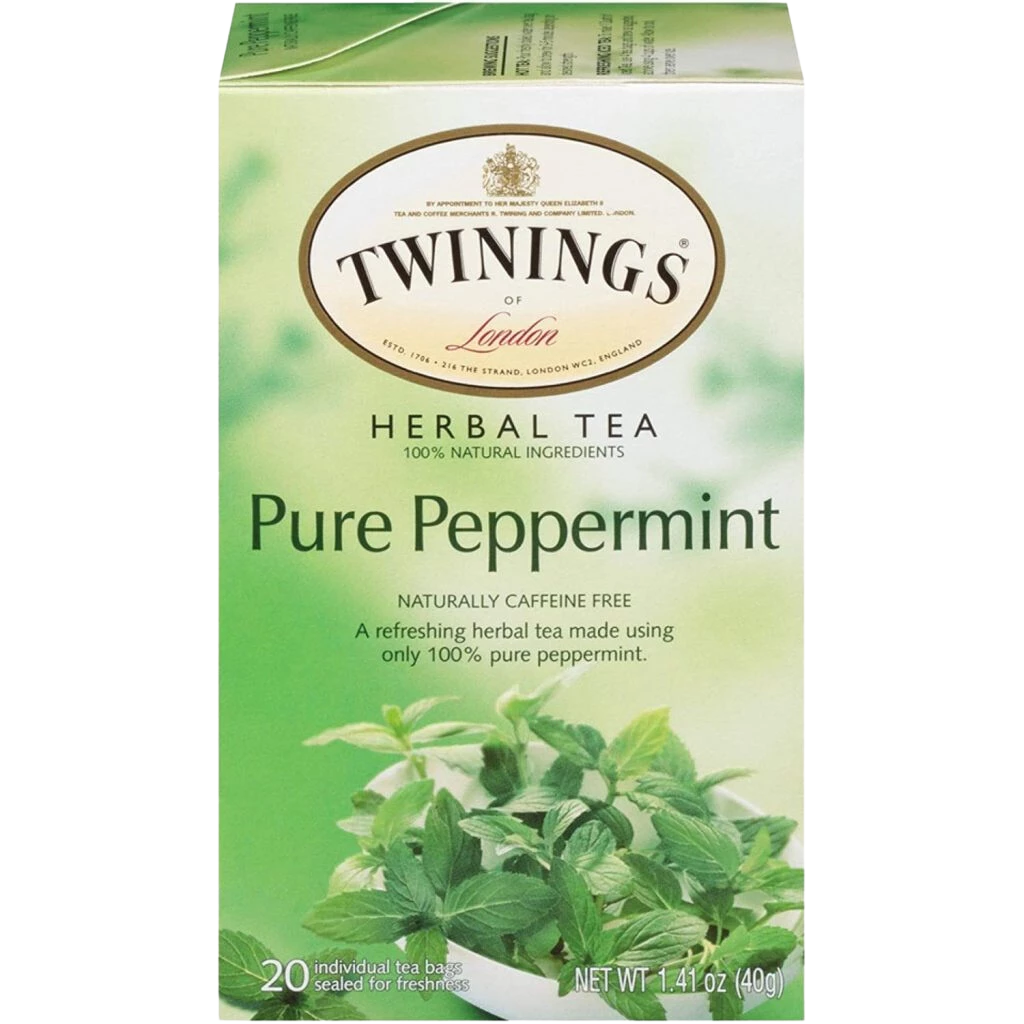
Twinings of London Peppermint Herbal Tea Twinings of London Flavor: Peppermint Caffeine: Caffeine Free
Pros: Made with high-quality 100% pure peppermint.
Cons: Each tea bag is wrapped individually (unless you purchase loose-leaf tea). This is a pro for some peppermint tea drinkers because of the fresher taste. But other tea lovers may find this wasteful.
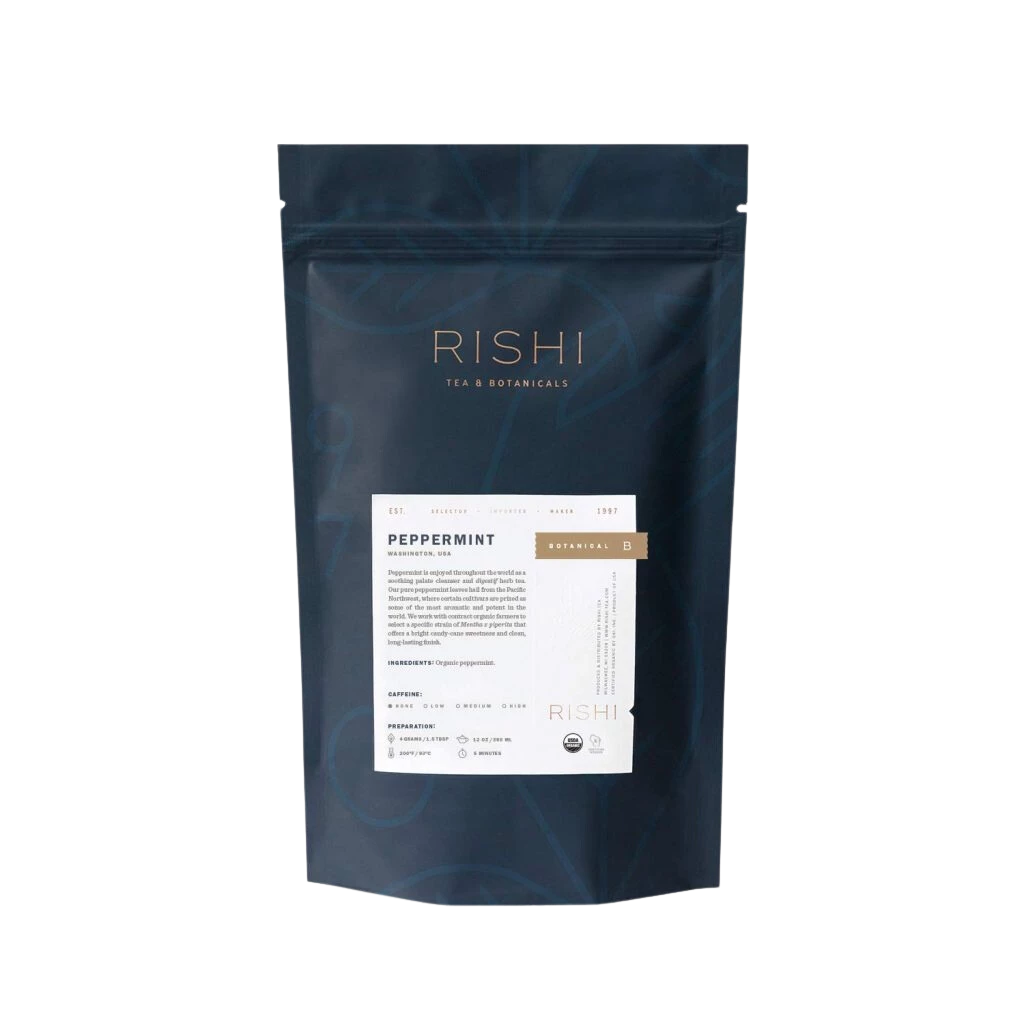
Rishi Peppermint Herbal Tea Rishi Tea Flavor: Peppermint Caffeine: Caffeine Free
Pros: Made from organic 100% peppermint.
Cons: The tea bags are made of plastic. Some tea drinkers don’t consider plastic packaging eco-friendly.
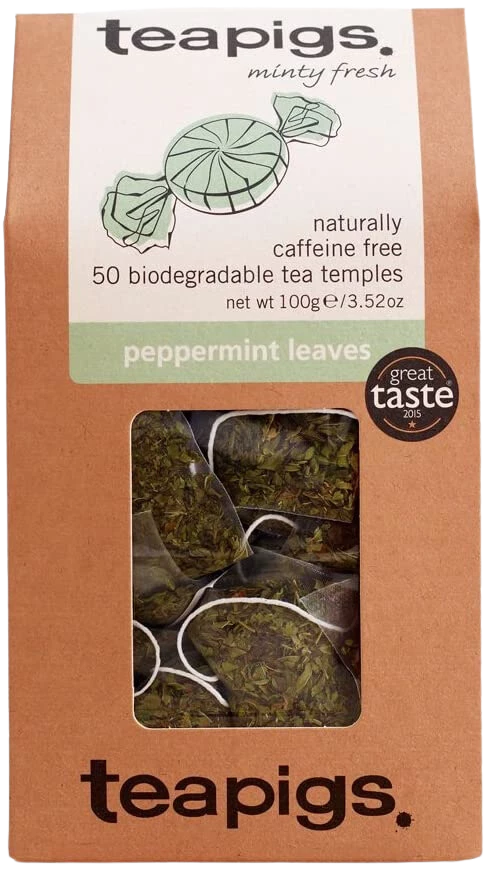
Teapigs Peppermint Herbal Tea Teapigs Flavor: Peppermint Leaves Caffeine: Caffeine Free
Pros: Strong, minty flavor in a plastic-free package.
Cons: This brand offers loose-leaf tea. Lots of peppermint tea lovers prefer loose leaves. But if you’re into brewing on the go, opt for a brand that offers tea bags instead.
The best hibiscus herbal teas
When you boil parts of a hibiscus flower, you get delicious hibiscus tea. Many tea drinkers enjoy this hot or iced. And it has a flavor that’s similar to cranberries — refreshing and tart! Plus, hibiscus tea is known for its health benefits:
- Antioxidants
- Polyphenols
- Lower blood pressure
- Lower blood fat levels
- Liver health support
- Weight-loss support
- Cancer prevention
The next time you start your kettle, try one of these incredible hibiscus tea brews.
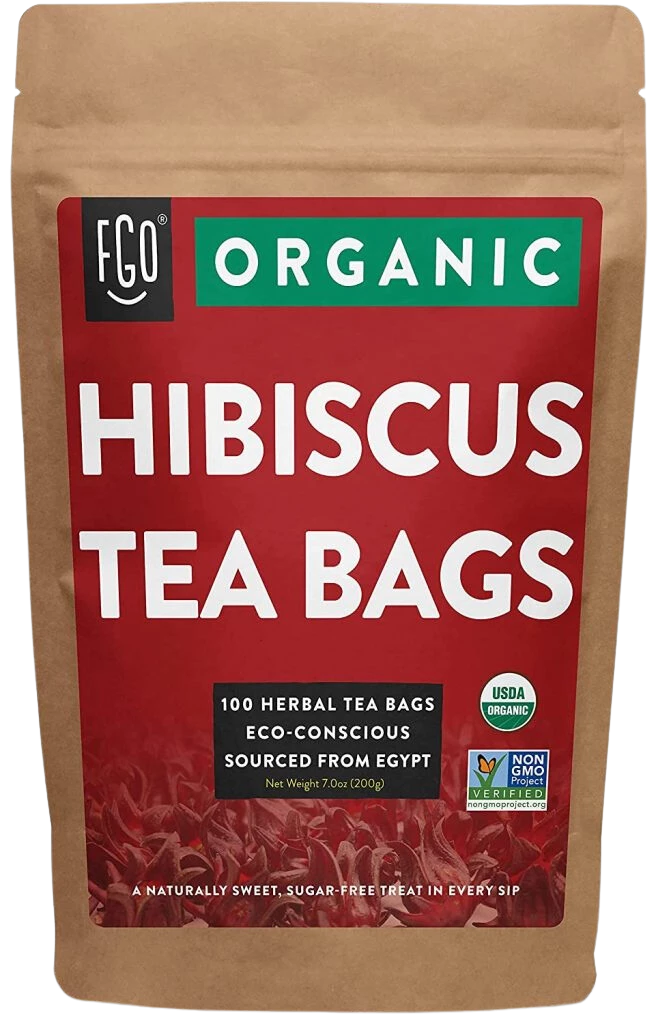
FGO Organic Hibiscus Tea FGO Organic Flavor: Hibiscus Caffeine: Caffeine Free
Pros: Packed in eco-conscious foil-lined kraft bags in the United States.
Cons: May have a slight cumin aftertaste depending on your palate.
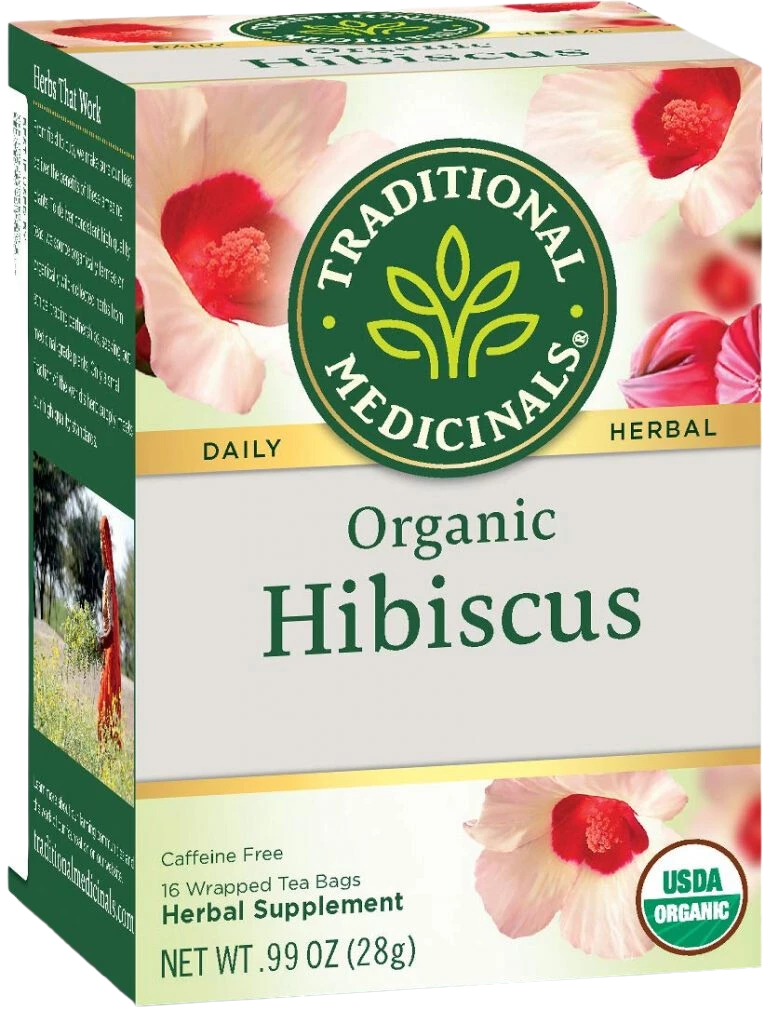
Traditional Medicinals Organic Hibiscus Tea Traditional Medicinals Flavor: Tart, tangy and fruity. Caffeine: Caffeine Free
Pros: Delicious tangy and tart flavor with heart health benefits.
Cons: Depending on how strong you like your tea, you may need to steep this brew for longer.
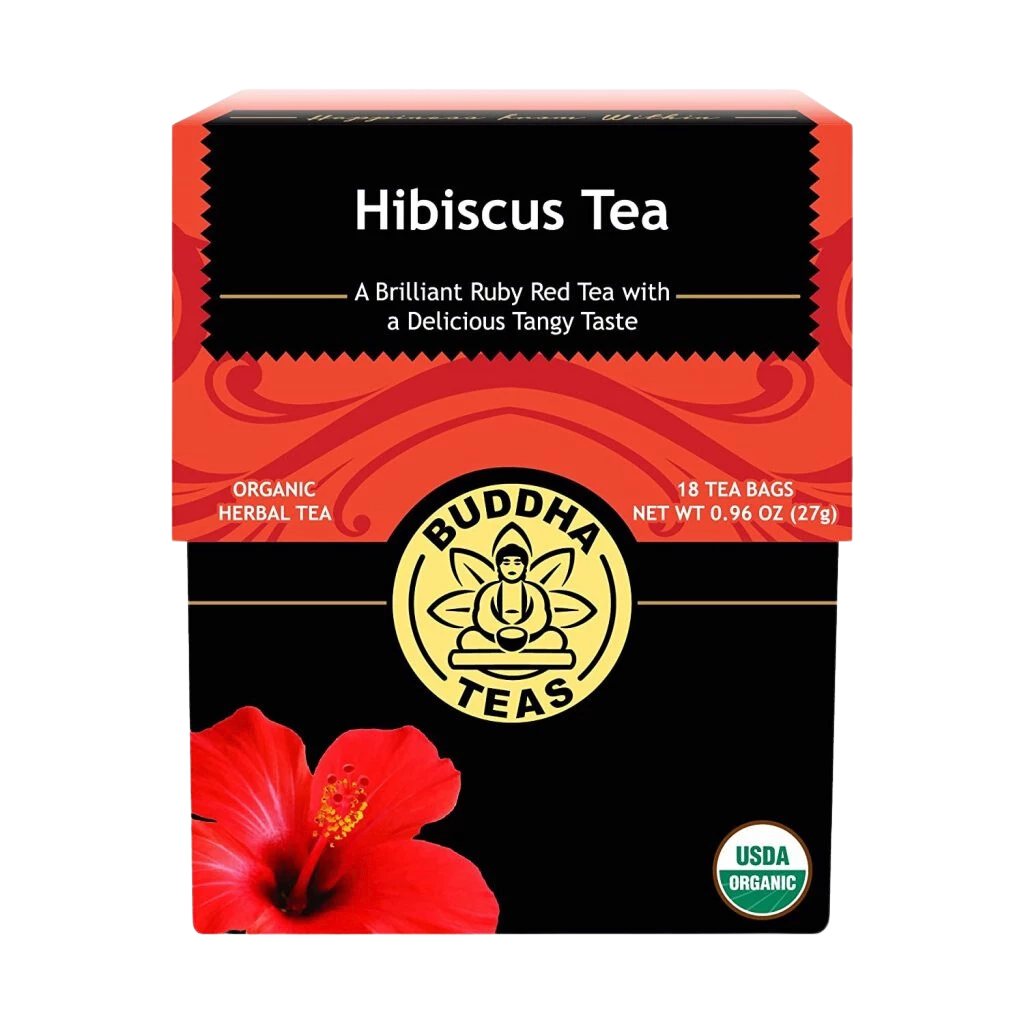
Buddha Teas Hibiscus Buddha Teas Flavor: Hibiscus Caffeine: Caffeine Free
Pros: Organic and GMO-free hibiscus tea sourced from Egypt.
Cons: If you enjoy tart flavors, this is the tea for you. But if you prefer teas on the sweeter side, you may have to stir in some sugar or honey.
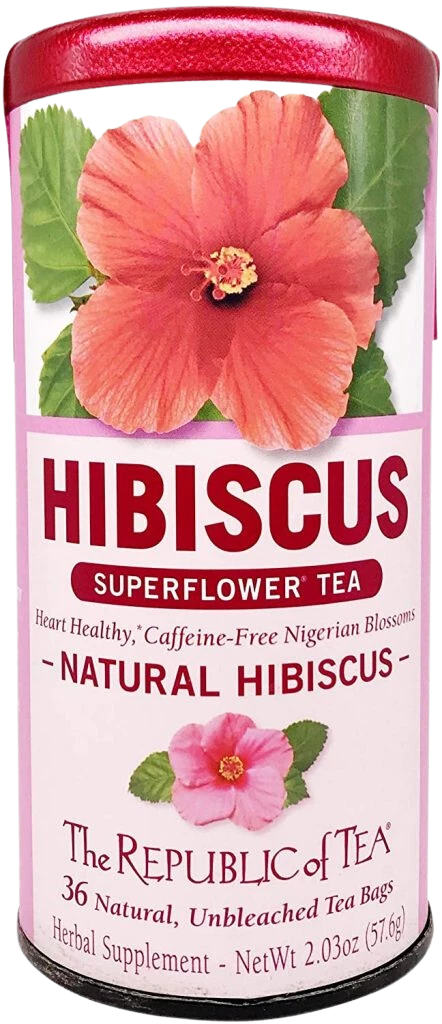
The Republic of Tea Natural Hibiscus The Republic of Tea Flavor: Natural Hibiscus Caffeine: Caffeine Free
Pros: Packed in unbleached tea bags without staples, strings, or tags.
Cons: This is a proprietary blend of hibiscus, blackberry, and stevia. It’s a sweet brew (which to some tea lovers is a good thing). But for tea drinkers looking for pure tart hibiscus, try Buddha Teas.
Final thoughts and top picks
Herbal teas are great alternatives to other caffeinated teas. They offer lots of health benefits without those caffeine jitters. Check out all the herbal teas.
Also, read our other articles about the best teas!
How To Choose The Best Rooibos Tea
How To Choose The Best Yerba Mate Tea
How To Find The Best White Teas & Their Benefits
How To Choose The Best Pu-Erh Tea
How To Find The Best Oolong Tea
Ultimate Guide To The Best Green Tea In The World
The Ultimate Guide To Choosing The Best Matcha Tea
How To Choose The Best Black Tea
